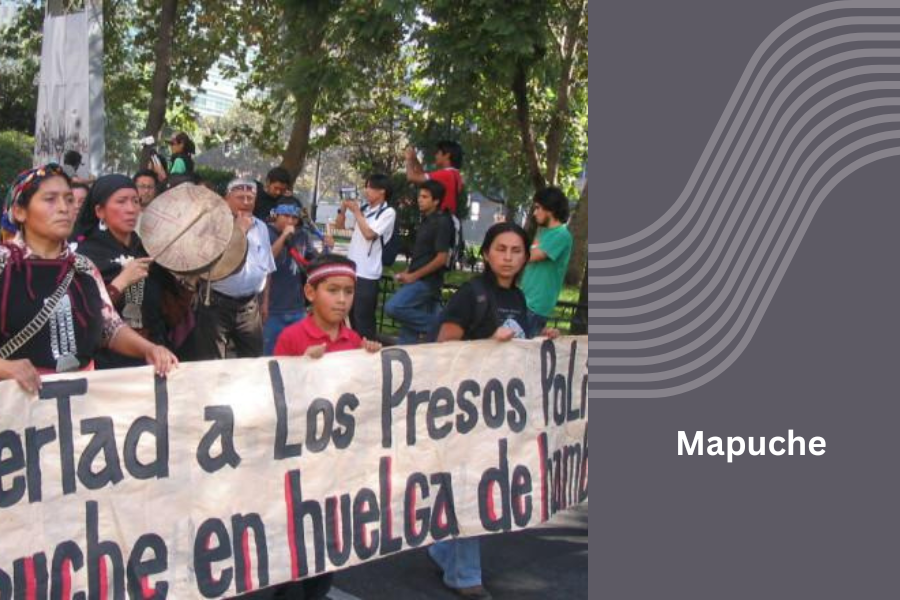
The Mapuche: Indigenous People of Chile and Argentina in Struggle for Recognition and Rights
The Mapuche are one of the most significant indigenous peoples of South America, with a strong presence in both Chile and Argentina. With a history dating back millennia, the Mapuche have preserved a rich culture and tradition that today faces threats from modern challenges. Their ongoing struggle for land rights, cultural recognition, and self-determination continues to shape the politics and society of both countries to this day.
History and Origin
The Mapuche, whose name in their Mapudungun language means “People of the Earth,” originally inhabited large areas of present-day southern Chile and Argentina, a territory known as Wallmapu. Archaeological findings suggest that their culture could date back 12,000 years. Known for their successful resistance to the Incan expansion and later to Spanish colonizers, the Mapuche managed to maintain their independence for a long time.
The Arauco War in Chile, which lasted almost 300 years, symbolizes the fierce Mapuche resistance against Spanish conquest. In Argentina, the Mapuche also resisted colonization for a long time. It wasn’t until the late 19th century, during the so-called “Pacification of Araucanía” in Chile and the “Conquest of the Desert” in Argentina, that the Mapuche lost much of their traditional territory to the respective national states.
Distribution and Demographics
Today, an estimated 1.7 million Mapuche live in Chile, representing approximately 9% of the total population. In Argentina, there are about 200,000 Mapuche, mainly in the provinces of Neuquén, Río Negro, and Chubut. These numbers underscore the significant Mapuche presence in both countries.
Culture and Traditions
Mapuche culture is deeply rooted in nature. Their spiritual beliefs are based on harmony between humans and the environment. The Nguillatun, an important religious ceremony, serves to maintain balance in nature and ask for a good harvest.
Mapuche society is traditionally organized in a matrilineal manner, with strong family structures and a complex system of social and political organization. Their art, especially textiles and silver jewelry, is known for its beauty and symbolic meaning.
The Mapudungun language, an essential component of their cultural identity, is threatened today. Efforts to revive and preserve the language are an important part of the Mapuche cultural struggle in both countries.
Current Challenges
Despite their significant presence, the Mapuche in Chile and Argentina face numerous challenges:
- Land rights: The loss of traditional territories to landowners, forestry companies, and energy projects is a main source of conflict. The Mapuche demand the return of lands and recognition of their territorial rights.
- Environmental conflicts: The exploitation of natural resources in Mapuche territories, especially by the forestry industry and hydroelectric projects, generates tensions and protests.
- Cultural recognition: Despite advances in recent years, the Mapuche continue to struggle for full recognition of their culture, language, and traditions in national education systems and public institutions.
- Political representation: In both countries, the Mapuche demand greater political representation and self-determination.
- Discrimination and social inequality: Mapuche are often affected by poverty and social exclusion, with less access to education, healthcare, and economic opportunities.
Legal and Political Developments
In Chile, the new constitution being drafted has the potential to strengthen the rights of the Mapuche and other indigenous peoples. In Argentina, there has been constitutional recognition of indigenous peoples’ rights since 1994, but implementation often remains inadequate.
Both countries have ratified ILO Convention 169 on the rights of indigenous peoples, which provides a legal framework for the protection of indigenous rights. However, practical implementation remains a challenge.
Resistance and Activism
The Mapuche have developed various forms of resistance and activism to fight for their rights. This ranges from peaceful protests and legal actions to more direct forms of resistance, such as land occupations. Some more radical groups have also resorted to violent means, which has led to tensions and conflicts with authorities.
Future Perspectives
The future of the Mapuche in Chile and Argentina depends on the ability of both countries to engage in genuine intercultural dialogue and consider the legitimate Mapuche demands for land, resources, and cultural recognition. A sustainable solution requires a holistic approach that takes into account social, economic, and cultural aspects.
Strengthening education in Mapudungun, promoting Mapuche culture, and improving economic opportunities for Mapuche communities are important steps in this direction. At the same time, it is crucial that the Mapuche themselves can play an active role in shaping their future.
The history and ongoing struggle of the Mapuche in Chile and Argentina underscore the complexity and importance of indigenous rights in South America. Their quest for recognition, justice, and self-determination remains an important part of the social and political landscape of both countries and a challenge for the future.
